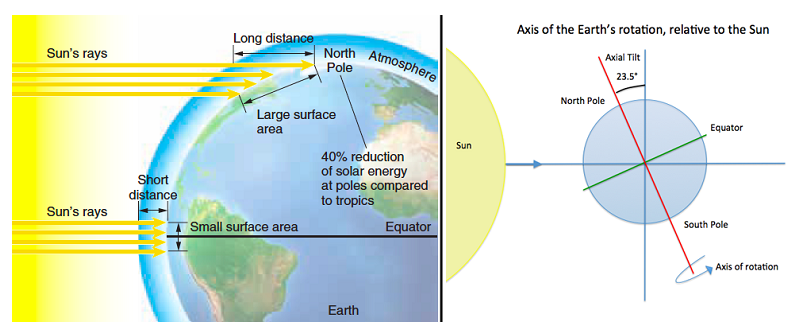The chain termination method of DNA sequencing is based on a replicating DNA strand
incorporating a deoxynucleotide that stops the chain elongation.
__________________ Indicate whether the statement is true or false.
F, dideoxynucleotide
You might also like to view...
The Earth is spherical, which causes differences in the intensity of solar radiation at different latitudes. The Earth is also titled on its axis at a 23.5? angle. How do you think this tilt affects the intensity of solar radiation?

A. In the Northern and Southern hemispheres, equal latitudes receive the sun's rays at equal angles year round.
B. The Northern hemisphere has a lower intensity of solar radiation than the Southern hemisphere because it is tilted away from the Sun year round.
C. The sun's rays strike the Northern hemisphere more obliquely during its summer months and less obliquely during its winter months.
D. The Northern hemisphere has a higher intensity of solar radiation than the Southern hemisphere because it is tilted toward the Sun year round.
E. The sun's rays strike the Northern hemisphere more obliquely during its winter months and less obliquely during its summer months.
Compare and contrast the structure and function of the saccule and utricle with that of the semicircular
canals with regard to maintaining equilibrium. What will be an ideal response?
When you shine light having a wavelength of 660 nm on a plant, which of the following will most
likely happen next? a. Pfr is stored for later use. b. Pr is synthesized. c. Pr is converted to Pfr. d. Pfr is converted to Pr. e. Pr is degraded.
A patient arrives at a hospital suffering from serious difficulty breathing and shortness of breath. Initial tests indicate none of the standard respiratory infectious agents are present. The physician suspects an immune disorder. What clinical
indicators would distinguish between asthma, pneumonitis and Pneumocystic pneumonia? What will be an ideal response?